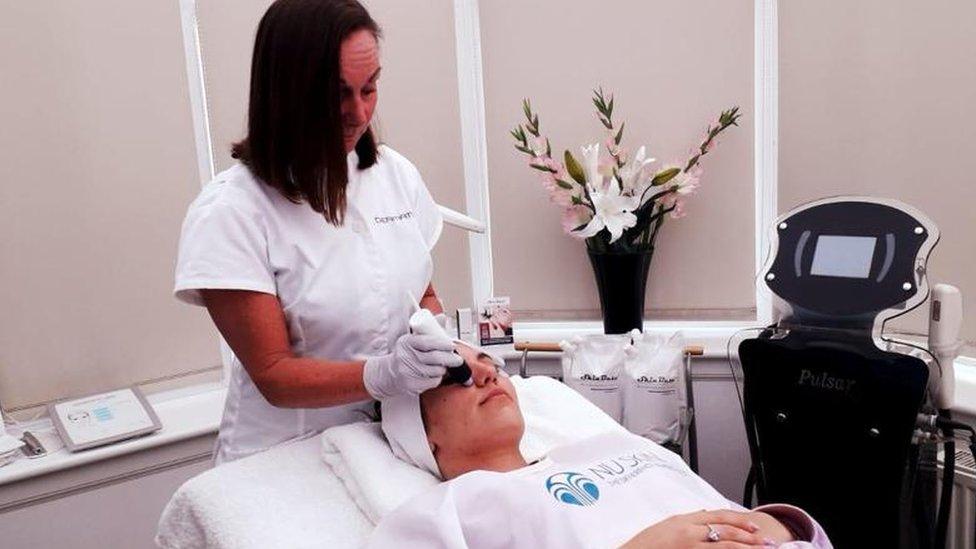Is sexism behind beauty salons' continued closure?
- Published
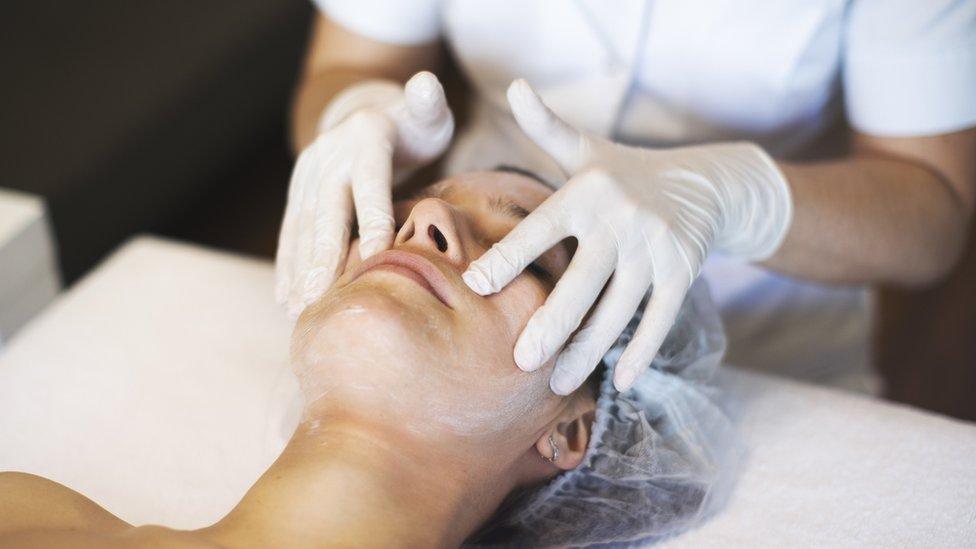
Questions have been raised over whether the beauty industry is suffering from sexism as well as lockdown
While hairdressers around England have reopened, beauticians have had to stand back and watch, not yet allowed to see customers amid the coronavirus pandemic. Some workers think it unfair and feel frustrated. And to compound matters, there have also been concerns a multi billion-pound industry is being belittled by sexism.
It started at Prime Minister's Questions a week ago, when MP William Wragg asked Boris Johnson when there might be a review of the decision to keep beauty salons closed, so enterprises in his constituency could reopen safely.
A specific site, Lush Beauty in Romiley, Cheshire, was referenced in the question. The prime minister replied: "I am sure that one day I will go with my honourable friend to Lush Beauty, but it is a sad reality for many of those excellent businesses that they cannot yet open in the way they want."
The remark drew laughter in some areas of the house. In different quarters, though, others took a dim view, branding the jokey response sexist. There have been claims it mocked the industry - one that, unlike hairdressers, does not yet have ringing tills.
So what has it been like for workers in the sector to be unable to take customers' money as MPs giggle on the benches?
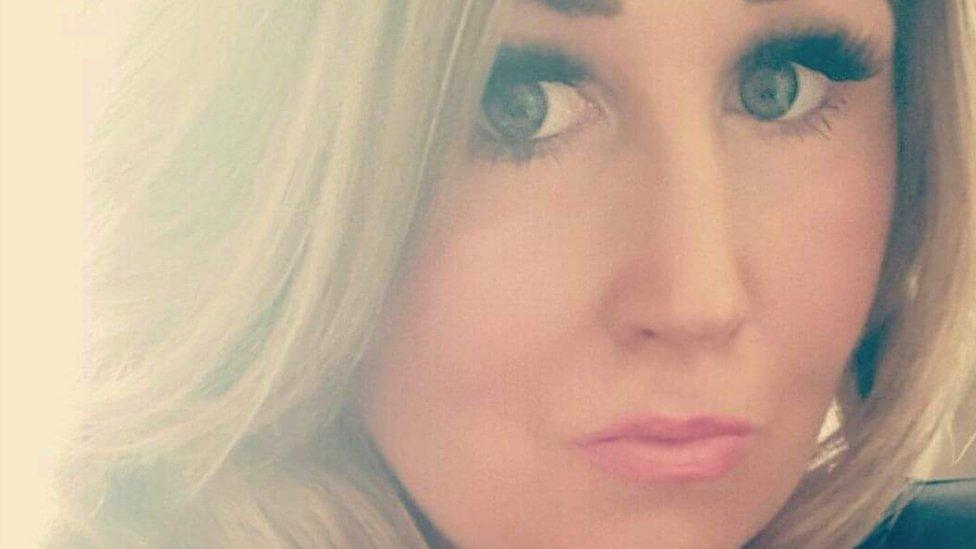
Kate Mackintosh said she felt patronised by the prime minister's comments
Catherine McVeigh runs Catherine's Hands in Haywards Heath, West Sussex. She said of the Commons tone: "What does that say to the average Joe Bloggs? That we're not a serious industry. It came across as sexist."
She said, given pubs reopened on Saturday, sparking crowded celebratory scenes in a "rammed" Soho, but appointment-only beauty salons still could not trade, things felt unfair.
"It feels like as long as [the prime minister] can get a pint and a haircut it is 'I'm all right Jack' and 'don't worry about the others'."
Mrs McVeigh was not alone in her dismay. Kate Mackintosh, who runs Love Lashes Lash Bar and Love Lash Boutique in Liverpool, said she felt upset and patronised, especially considering "the amount the industry contributes to the economy".
"I can't work out whether it is sexism, because 90% of the industry is led by women," she said.
"For a lot of people, it is not the vanity of getting the treatment, it is social interaction, and for some people that does affect their mental health."
The day after the Commons comments, the chairs of the All Party Parliamentary Group for Beauty, Aesthetics and Wellbeing, MPs Carolyn Harris and Judith Cummins, wrote to Boris Johnson, describing the laughter as "unacceptable", and urging the government to "recognise that the financial ruin of the beauty industry is no laughing matter".
Allow X content?
This article contains content provided by X. We ask for your permission before anything is loaded, as they may be using cookies and other technologies. You may want to read X’s cookie policy, external and privacy policy, external before accepting. To view this content choose ‘accept and continue’.

In the correspondence, the pair accused the prime minister of previously dismissing the industry as "nail bars", adding that, in reality, it contributed billions annually to the UK GDP and employed more than 150,000 people in its service side.
The MPs asked: "Were people laughing because this is an industry which women predominate? And is it because of the government's perception that this is just an industry of 'nail bars' that you have failed to give any indication as to when the industry can reopen?"
Mr Wragg later apologised if his question came across as "anything other than well intentioned", adding a letter from the National Hair and Beauty Federation thanking him for raising the issue.
Allow X content?
This article contains content provided by X. We ask for your permission before anything is loaded, as they may be using cookies and other technologies. You may want to read X’s cookie policy, external and privacy policy, external before accepting. To view this content choose ‘accept and continue’.

Among those unable to welcome customers has been Jenna Woolliscroft, who runs Bella's Beauty in Stoke-on-Trent. She has also been among those left unsure what was behind the delay.
"I can't really see the difference between hair and beauty," she said.
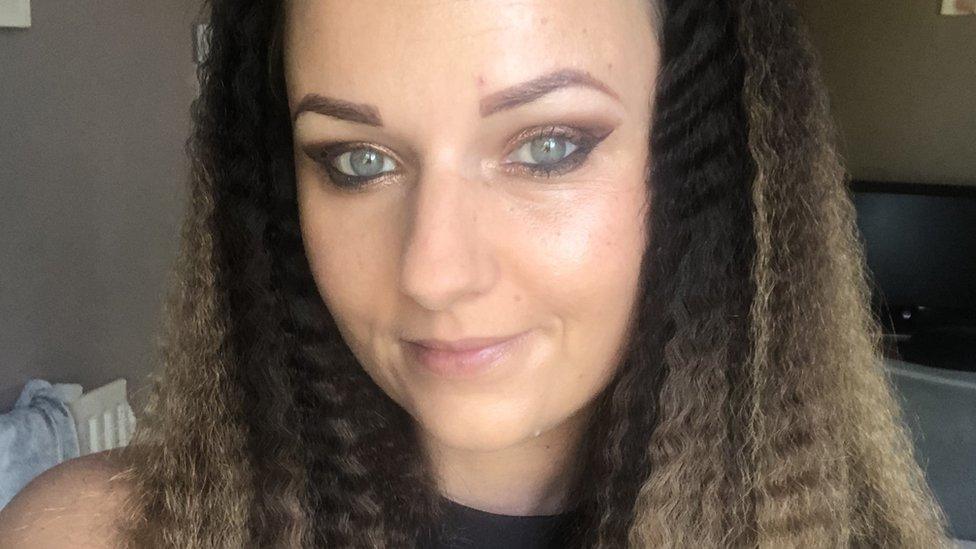
Jenna Woolliscroft has run Bella's Beauty for three years
Her frustration was that both types of enterprise would be classed as "close contact services", external in government guidelines but were being treated differently. Just how close is close?
A Department for Business, Energy & Industrial Strategy spokesperson said: "We will reopen closed beauty salons as soon as possible, once we are confident they are able to operate in a Covid-secure way.
"This is particularly important where there can be a greater risk of transmission due to prolonged periods of face-to-face contact."
The official line, then, is that the precise type of work can put people closer to the danger zones of eyes, nose and mouth; interaction more readily avoided in a haircut.
It is a blow to Ms Woolliscroft, who said: "I was so prepared, I had done a risk assessment, got Covid-19 track and trace forms ready for customers to fill out... the money I have spent on PPE, visors, masks, no-touch hand sanitizers.
"Then [the government was], like, 'no' - I was devastated."
She added: "At the moment it does feel like we're not seen as relevant.
"Even if they restricted some treatments, or gave us an outline that said 'you can do this, but not that'... but it feels like we have been completely ignored."
And if 'nail bars' is a flawed perception, then back in Liverpool, Mrs Mackintosh thinks the situation raises another matter not properly perceived.
She said: "To be perfectly honest, everything apart from keeping the metre or more apart and the actual visors, things like masks, gloves, cleaning stations, continuous hand washing, those are drummed into you from day one - we do that as standard, it is nothing new to us."
And that precaution, she says, has meant every time she has built up for a government announcement "I'm left either disappointed or totally confused".
The BBC approached 10 Downing Street for a comment over the allegations of sexism. It referred the BBC to the Department for Business, Energy & Industrial Strategy, which suggested approaching Number 10.

What do I need to know about the coronavirus?
EASY STEPS: What can I do?
CONTAINMENT: What it means to self-isolate
LOOK-UP TOOL: Check cases in your area
MAPS AND CHARTS: Visual guide to the outbreak
VIDEO: The 20-second hand wash

- Published5 June 2020
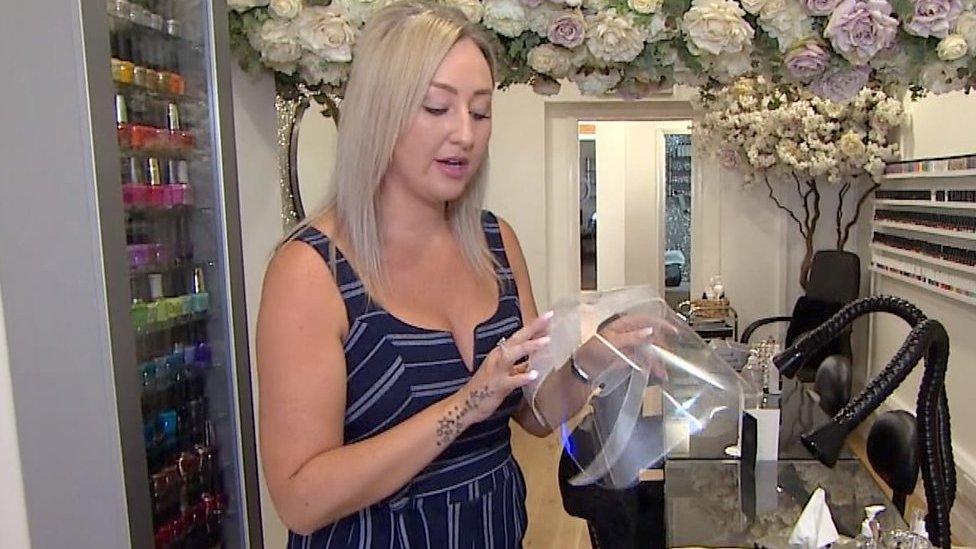
- Published4 July 2020
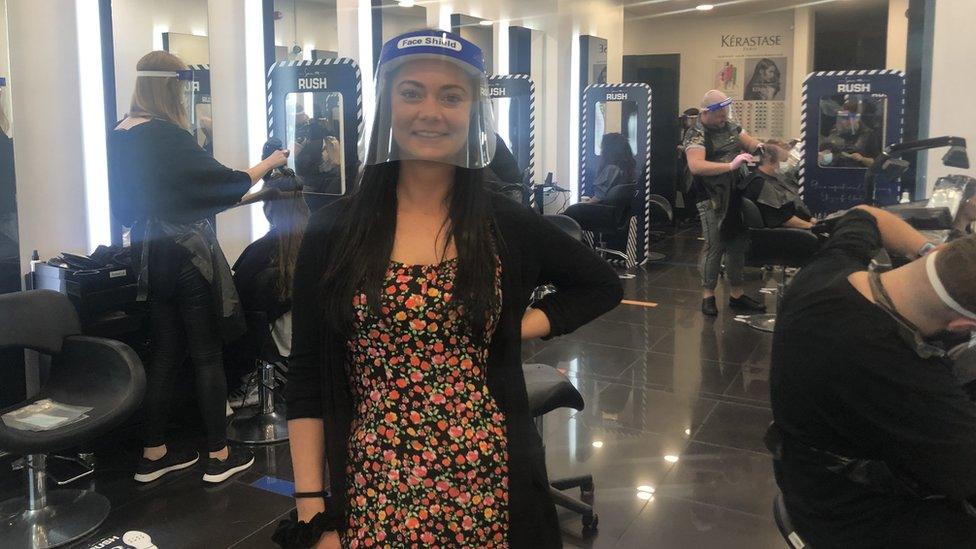
- Published3 July 2020
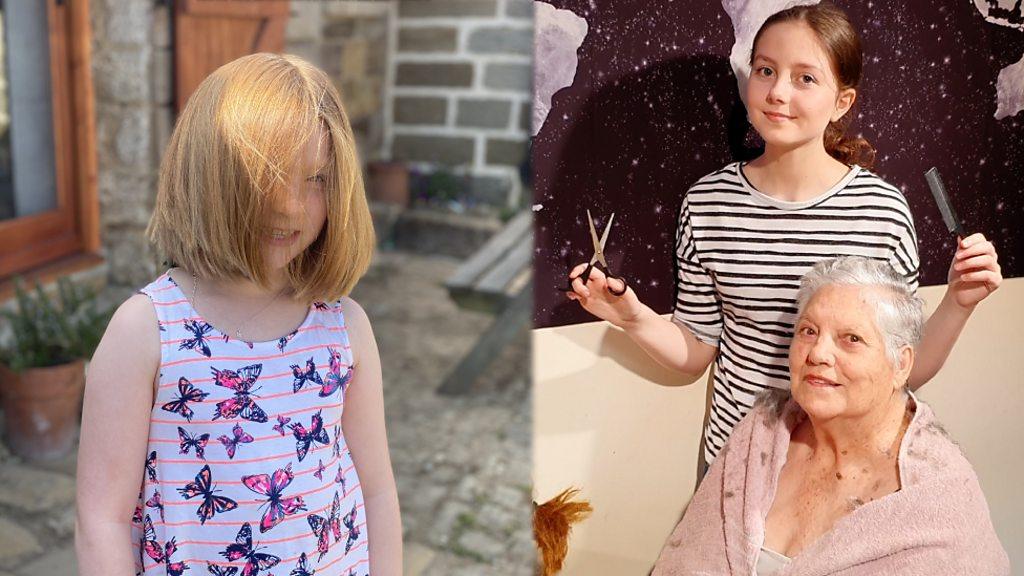
- Published30 June 2020
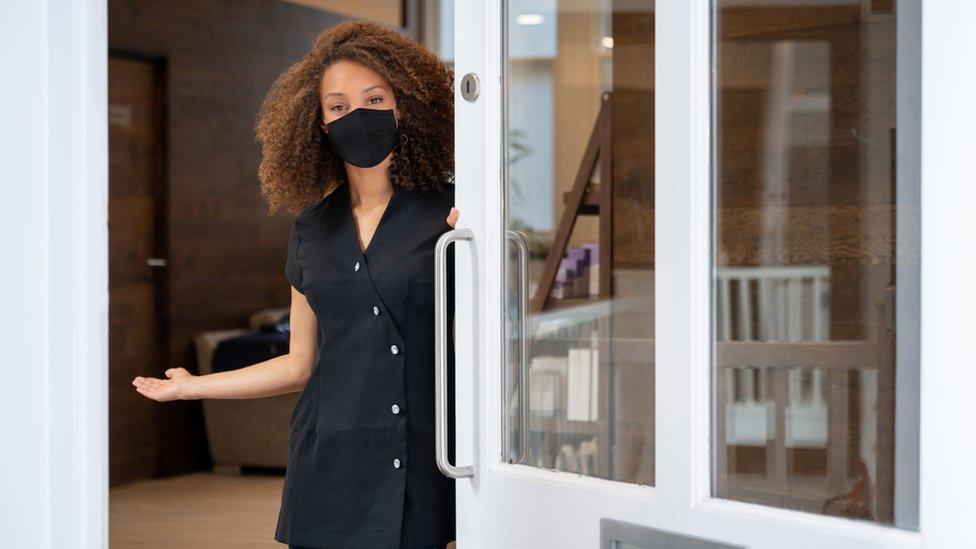
- Published27 June 2020
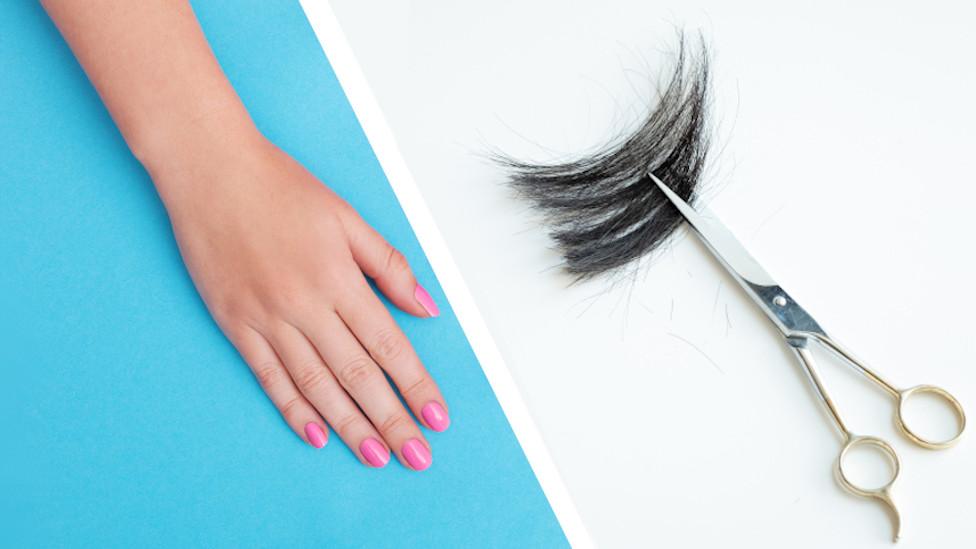
- Published25 June 2020
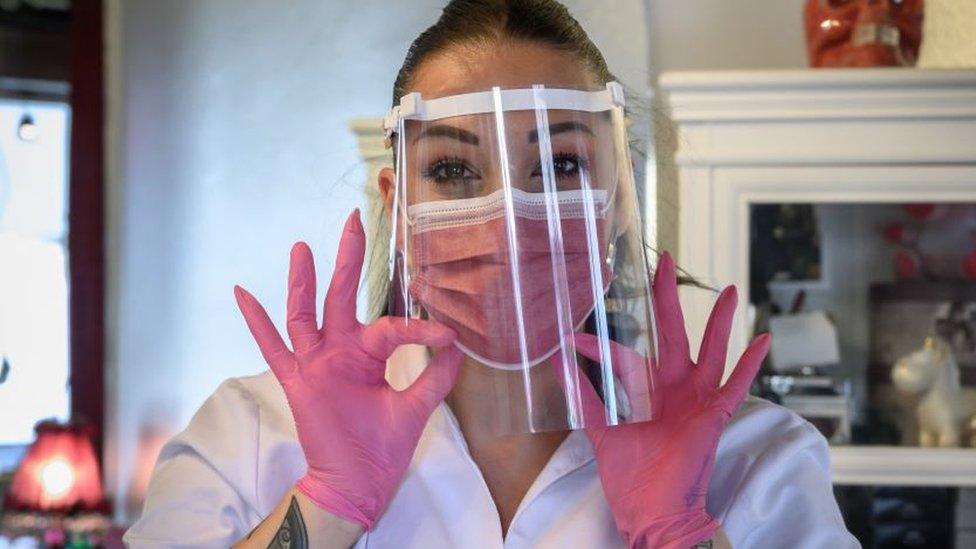
- Published24 June 2020
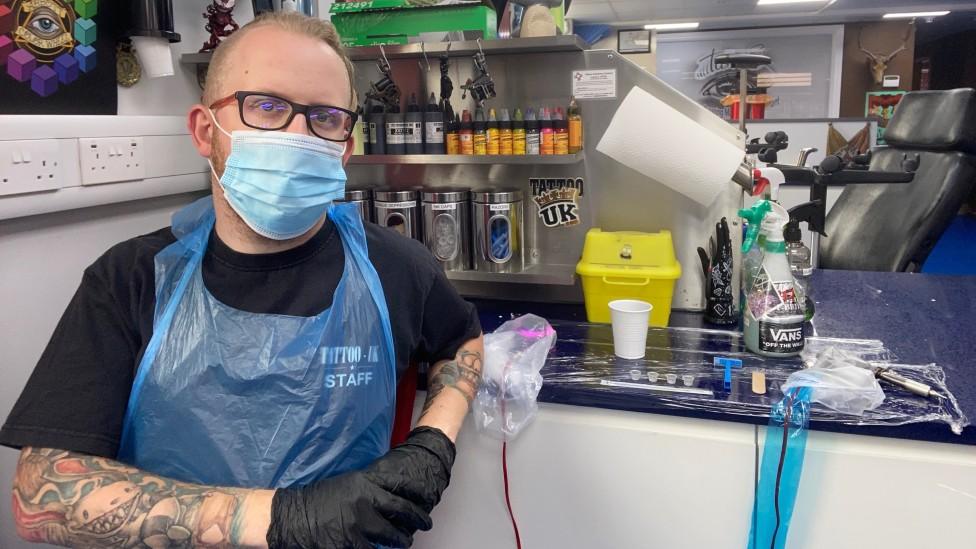
- Published29 April 2020
